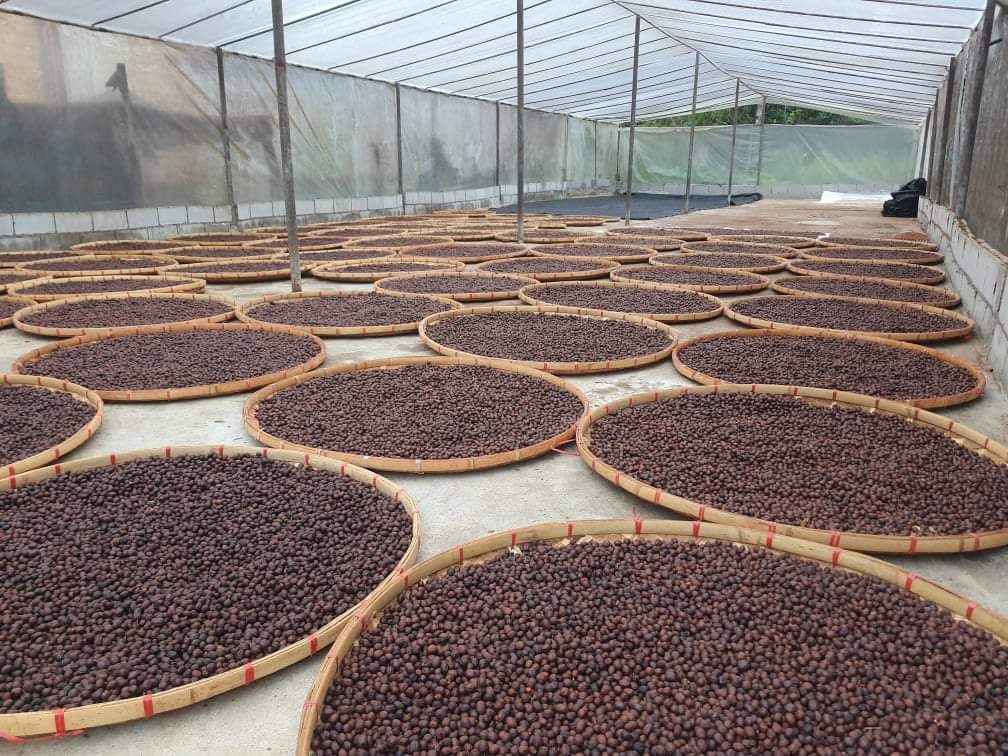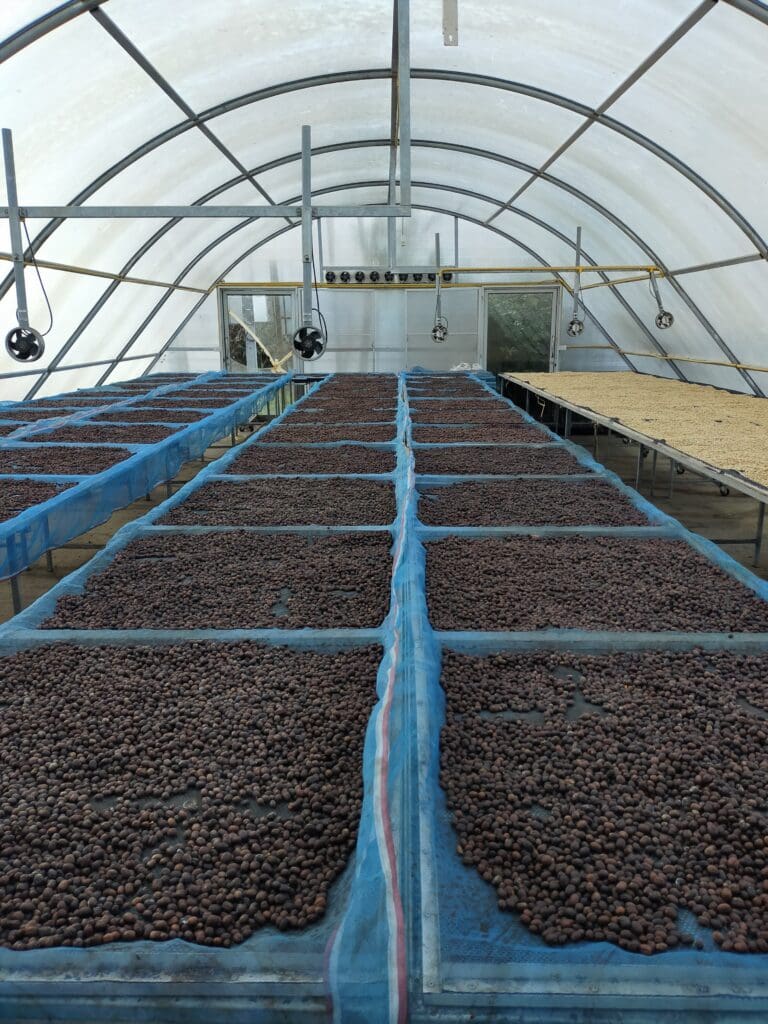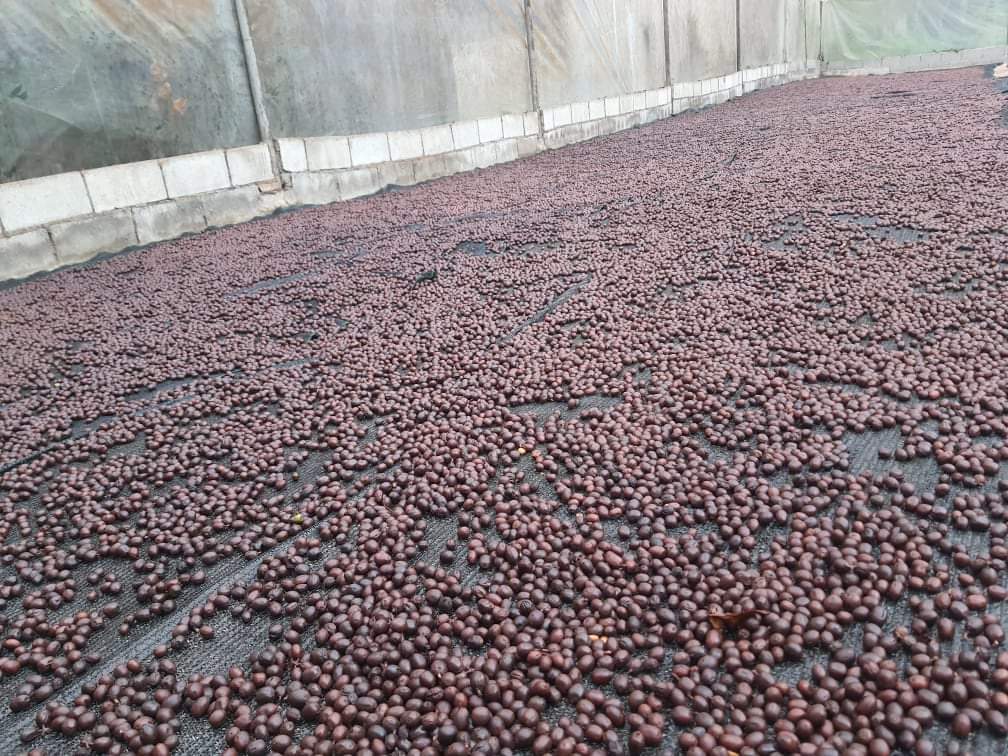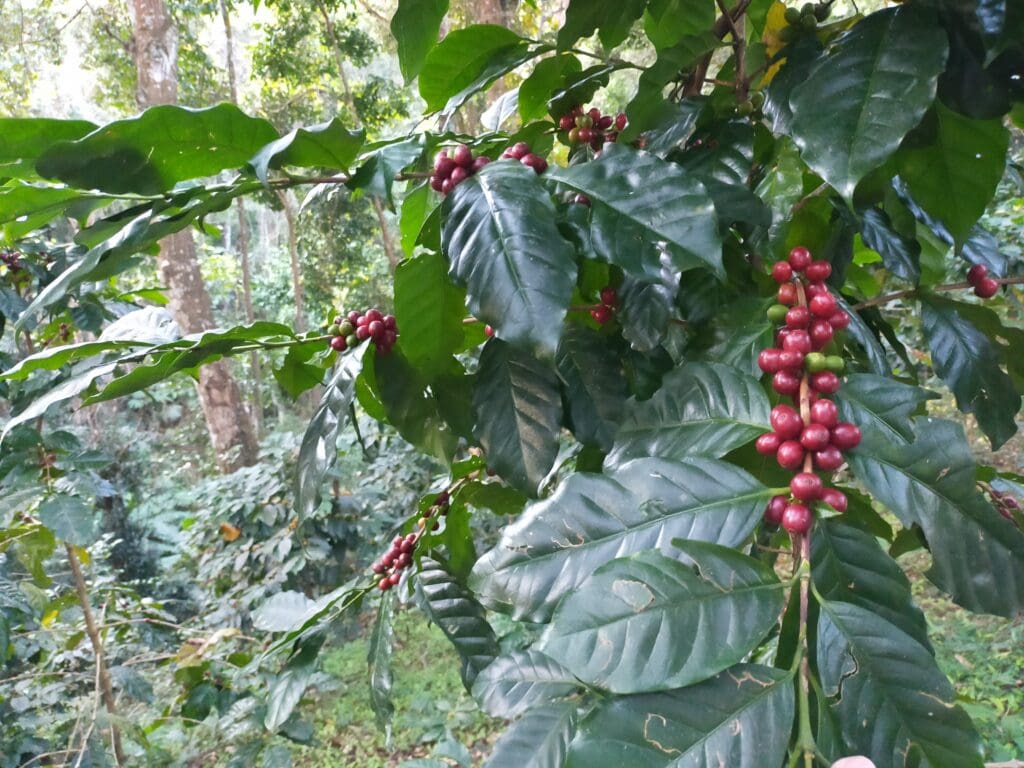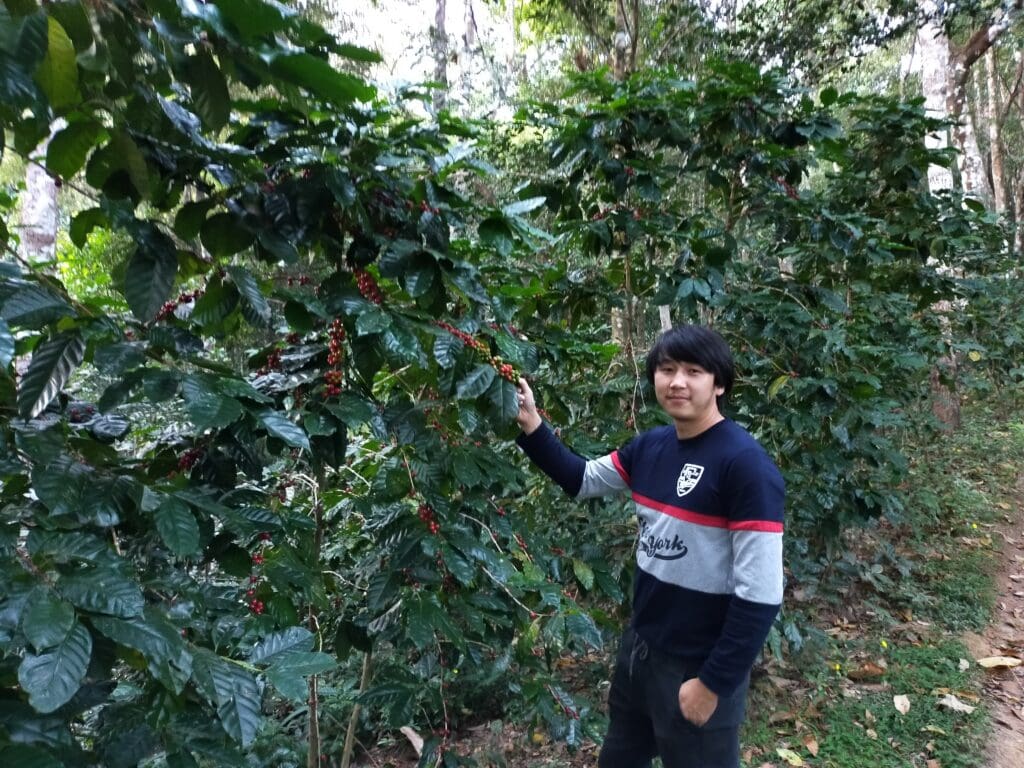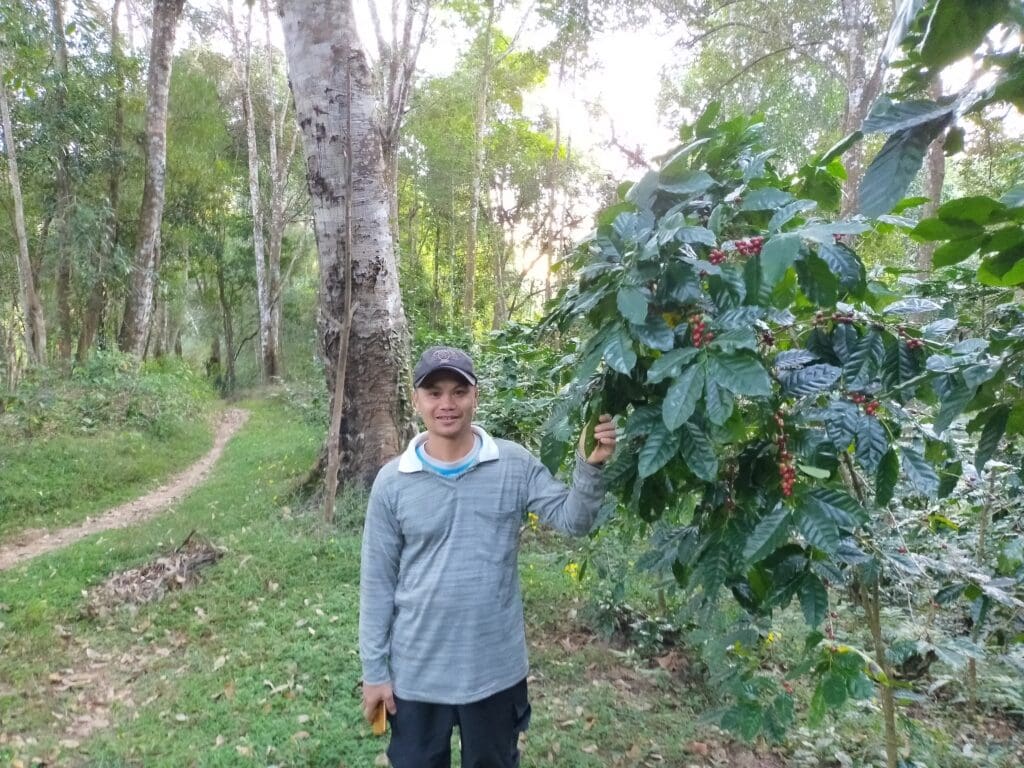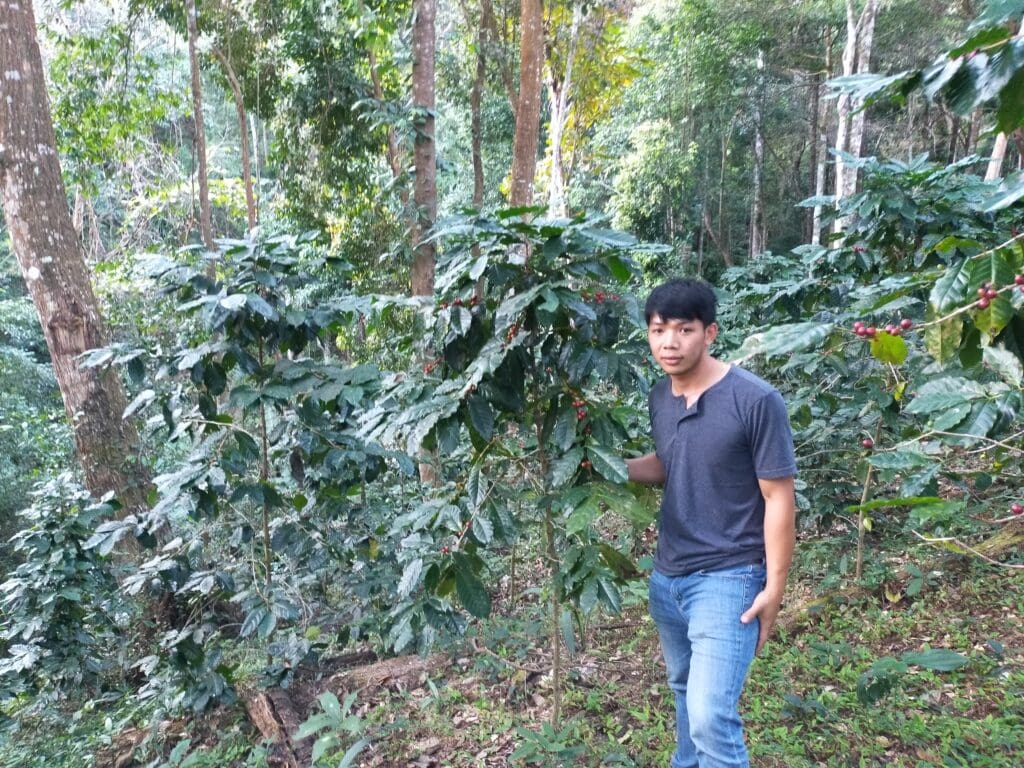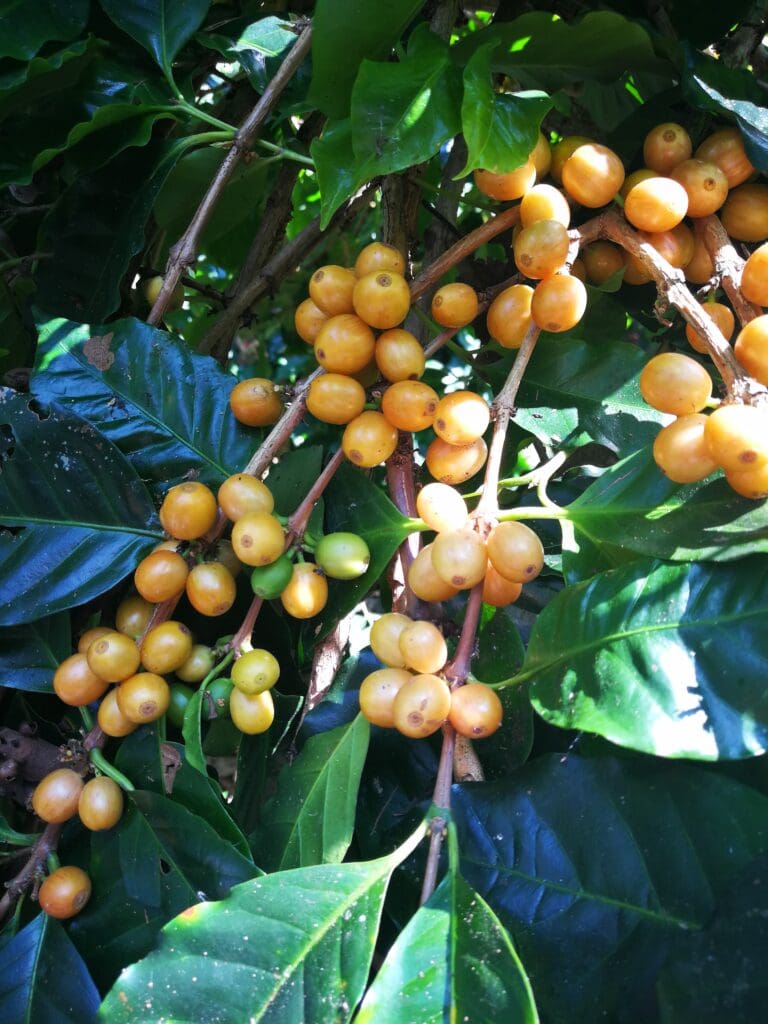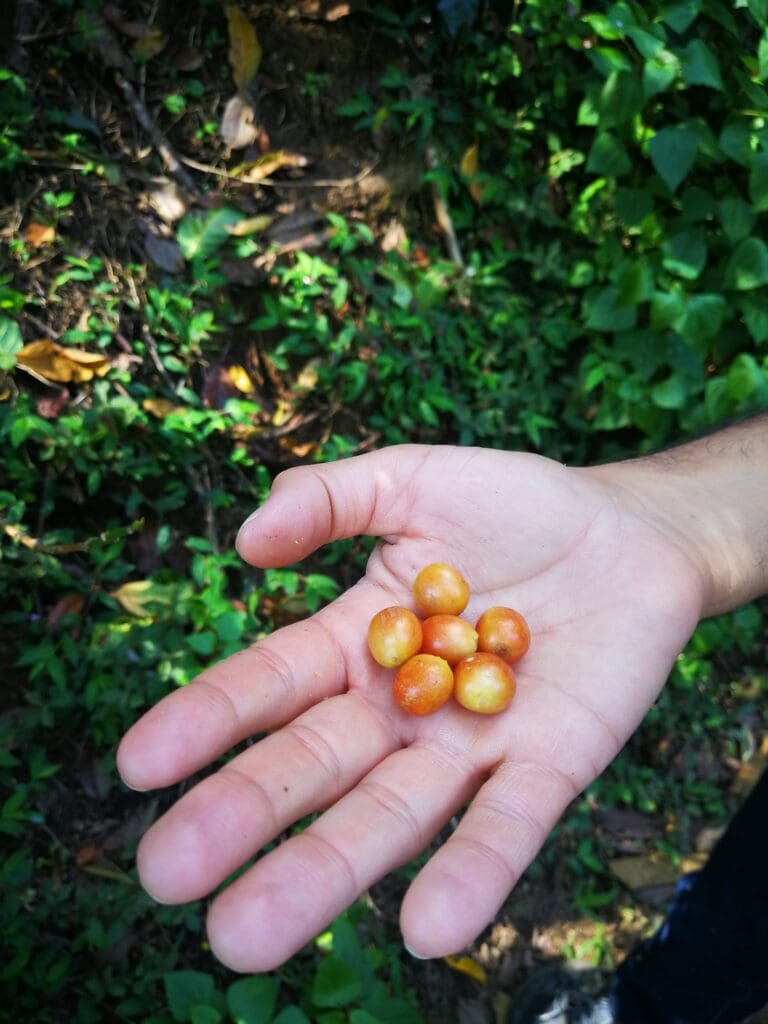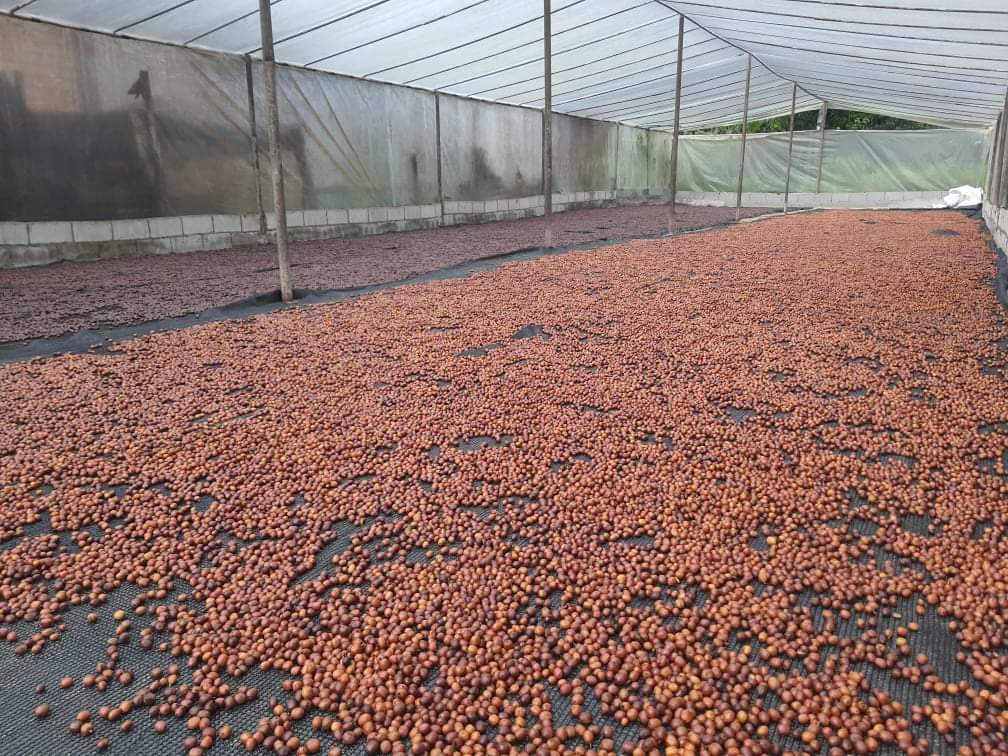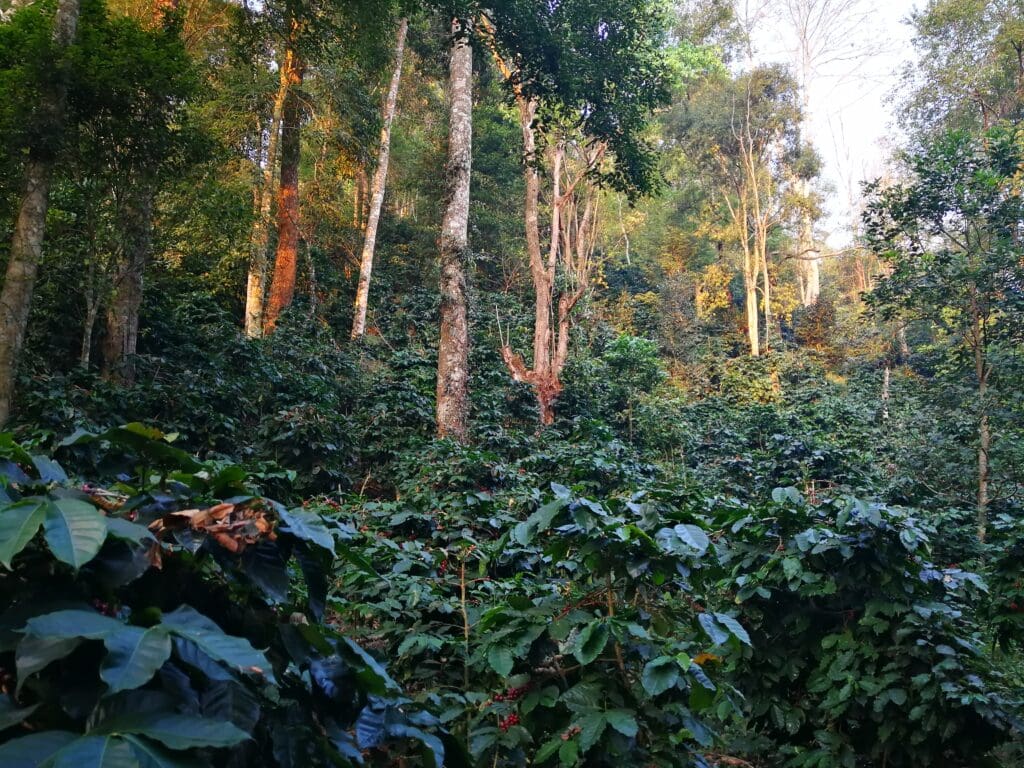The Mae Chedi Cooperative is composed of 19 coffee farmers in the Mae Chedi district of Chiang Rai, Thailand. Mae Chedi is an area that is traditionally known for tea plantations, where tea is still the primary cash crop in the area. With the growing demand for specialty coffee from the country however, Mae Chedi’s young generation of farmers are beginning to invest themselves more entirely into coffee production. Members of the co-op are an innovative group of producers, borrowing from their knowledge of tea fermentation practices to apply new fermentation methods into their coffee production.
Coffee farming is a relatively new industry in Thailand, and one that is proving to be attractive to young entrepreneurs. Thailand’s current coffee history dates back to the 1970s, when an opium eradication project started by the King of Thailand introduced the first coffee trees to areas like Doi Saket. Efforts to reforest degraded land and introduce coffee and other crops to replace illicit cultivations proved extremely successful. Farmers’ mountain properties today are flourishing, with many of the original planted varieties—like Catuai, Typica, and local Chiang Mai which is a cross between SL-28, Caturra, and Timor hybrid—thriving in healthy production.
Mae Chedi Chiang Mai Anaerobic Natural was sourced from our exporting partners in Thailand, Beanspire Coffee. Beanspire’s co-founders, Fuadi Pitsuwan and Jane Kittiratanapaiboon, are part of the young generation moving the Thai coffee industry forward. Thailand is unique as a coffee producing country; the country’s specialty cafe and roaster scene is thriving, and domestic consumption demands regularly outpace the country’s production volume. Only around 5% of Thailand’s specialty coffee is exported each year, while the rest is enjoyed by Thai coffee drinkers. This means that the coffees selected for export by the team at Beanspire are each chosen to share the work of Thai coffee producers with a global audience, providing a glimpse into the growing specialty coffee revolution happening in the country.
Beanspire mill is one of the most advanced in Thailand, with a destoner, huller, and a gravity table for density sorting. Jane and Fuadi have built Beanspire to produce quality from the outset, passing all coffee through density and hand sorting multiple times to ensure quality and uniformity. Coffee is packed in triple layer bags for shipment: cotton bag as outer layer, High Density Polyethylene (HDPE) as middle layer, and GrainPro as inner layer. The HDPE bags help maintain moisture content, thus preserving quality for longer. We’re proud to partner with Beanspire Coffee to share this unique lot of coffee with you.
This lot of Chiang Mai coffee underwent Anaerobic Natural processing. Coffee cherries were fermented for nine days in sealed HDPE bags before being dried. This extended fermentation time is similar to the fermentation period used for tea production in the area. These airtight bags create an anaerobic environment for fermentation, allowing for the production of lactic acid during the fermentation process. This style of fermentation adds body, sweetness, and complexity to this Natural Chiang Mai coffee.
